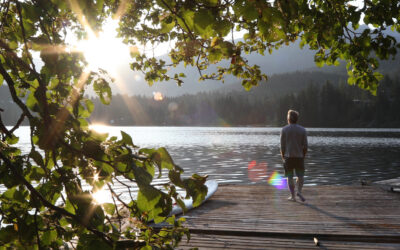Three thousand, five hundred miles. That’s roughly how far it is from Columbus, Ohio, to the Grand Canyon National Park and back. It’s a daunting distance. When I told my parents that I was planning on going on a road trip with two of my friends, they were excited for me. When I told them the road trip was to the Grand Canyon, they were more than a little concerned.
“Do you know how far away that is?” My mom asked me. I told her of course I knew—I had planned the road trip. I used Google and some common sense to plan the itinerary. I picked cities that were around eight hours apart from each other on the major highways going to the Grand Canyon. I didn’t know what those cities would be like or what it would feel like to be that far away from home, in states I had never been to. My mom wasn’t impressed with my plans, which I knew seemed scanty, though I had made all the arrangements I possibly could have.
I knew my road trip plans sounded scary, dangerous, a little unnecessary. But I also knew I was scaring my mother simply because I was entering a situation that was largely unknown.
If I’m being perfectly honest (even at the cost of getting an “I told you so” from my mom), I was pretty nervous about the trip. As my departure day got closer and closer, I became increasingly worried. What if I messed up the AirBnb reservation? What if we had to drive in terrible weather? What if it was much harder than I was planning on, hoping for? What if, after all the work we put into planning, and all the money we spent on the trip, it ended up being a mistake?
Spoiler: I was fine. The trip was wonderful. We had no problems with the car, we ate tons of really good Mexican food, and I brought back a souvenir for everyone.
Funny enough, there was no specific moment when I knew I was going to be okay. The trip was an idea, a monster of a feat, an expense, a risk. But when I got into my car and actually left my neighborhood, and got onto the highway, I remembered what it was that I was doing: driving. All I was doing was going from one place to another. And when I thought about it, I realized that’s all I ever have done, or will do. We live in constant motion.
Knowing you want to go to the Grand Canyon can be dizzying, because when you think about it, you think you’re going to do it all at once. You think of the goal as a composite of anticipated experiences. You tell people what you’re going to do, and you feel the weight of all the hours you’re going to be spending in the car, how many gas stations you’re going to have to pee in, how many times you’ll be hungry or tired or nervous or just uncertain.
But that isn’t how a road trip works. The point is that you take your time. You split up the days. You make pit stops. You enjoy yourself. You don’t let yourself get freaked out about mountain driving or bad weather. You just drive. You take the next turn. You check how the gas is doing.
Here’s the truth about my trip to the Grand Canyon: it was not a trip to the Grand Canyon. It was a trip to my best friend’s house in Illinois, where we played Fleetwood Mac on the local pizza joint’s jukebox; it was a trip to Omaha, Denver, Flagstaff, Albuquerque, Oklahoma City, St. Louis and the places in between.
I saw the Grand Canyon, but I also saw red mountains, and desert that looked like it had never been touched by people. I met three stray dogs and saw an actual tumbleweed. I outdrove a storm, gained an education through podcasts, and at some point, stopped for a McFlurry.
Before I left, I couldn’t believe what I was doing. And after? The experience still feels bigger than it was. When I think about how crazy it seems to have done that, and all the risks that my friends and I took, I remind myself that I could do it again. It all ended up being very simple. Just put your last bag in the car, turn on the ignition, and drive.
I am a senior in college. The majority of my life is still in the future. My friends and I spend our nights talking about what we want to do, who we want to be. Someone wants to be a diplomat. Another wants to remodel the education system. These goals are so distant to us, they almost seem fictitious.
So much of what we want, as people, seems impossible. Maybe it’s losing weight, or teaching your children how to be healthy, or improving your mental wellbeing. Maybe you want a new job or to go back to school. Maybe you’re too afraid to start.
Dreams—the goals we want, more than anything—are intimidating. I consider this to be a curse, and a blessing: a curse, because we are liable to convince ourselves that what we want is too big for us. We do not know what our futures hold, or what we are capable of, but we do know, for instance, that 3500 miles is quite a distance.
But dreams are blessing to us, though they breed uncertainty, because it is within this uncertainty that we act anyway. We do not know if we will arrive at our goals, or if our plans will go well. All we know is that we can try. And in trying, we know what we really want, and who we really are.

If you could do anything, even if it freaks out your mom, what would you do?
Will you?




0 Comments